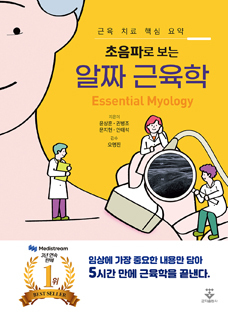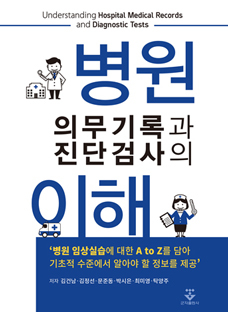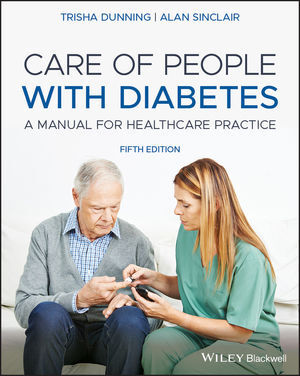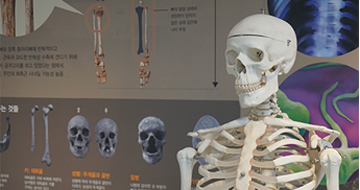Foreword xiii
Preface xv
Acknowledgments xvii
List of Abbreviations and Symbols xix
1 Diagnosing and Classifying Diabetes 1
Key points 1
What is diabetes mellitus? 2
Prevalence of diabetes 2
Classification of diabetes 3
Overview of normal glucose homeostasis 3
Brain‐centric model of glucose homeostasis 10
Metabolic syndrome in children and adolescents 13
Types of diabetes 14
Diagnosing diabetes 22
Preventing diabetes 26
Managing diabetes mellitus 29
Key points 29
Complications of diabetes 36
Aims and objectives of diabetes care 38
Technology and diabetes management 40
A sobering final comment 42
References 43
2 Holistic Personalised Diabetes Care 49
Key points 49
Rationale 49
Shared decision‐making (SDM) 50
Holistic diabetes care 51
Communication and the power of language 52
Reading fiction to improve empathy and communication skills 53
Care models 53
Characteristics of an holistic health history 55
References 58
3 Assessing and Monitoring People with Diabetes 61
Key points 61
Rationale 61
Key issues to consider in comprehensive assessments 62
Monitoring glucose levels 62
Monitoring 1: Blood glucose 64
Key points 64
Insulin pumps 75
Monitoring 2: Urine glucose 76
Key points 76
Monitoring 3: Additional assessment 78
Self‐care 82
The annual review 83
Summary 83
References 83
4 Nutrition and Weight Management 87
Key points 87
Rationale 87
The importance of good nutrition 88
Malnutrition and undernutrition 88
Method of screening for dietary characteristics and problems 90
Principles of dietary management for people with diabetes 92
Goals of dietary management 95
Overweight and obesity 95
Methods of measuring weight 99
Managing obesity and diabetes 100
Dietary management: overweight and obesity 101
Factors associated with making dietary changes 103
Key points 104
Alcohol 107
Exercise/activity 107
References 108
Further reading 112
5 Medicine Management 113
Key points 113
Introduction 114
QUM 114
QUM and diabetes 114
GLM 117
Medicine interactions 129
Combining GLMs and insulin 130
When should insulin be initiated in Type 2 diabetes? 131
Challenges to initiating insulin therapy 134
Some strategies to overcome the barriers 135
Insulin therapy 136
Types of insulin available 136
Storing insulin 139
Injection sites and administration 140
Mixing short/rapid acting‐ and intermediate‐acting insulins 141
Commonly used insulin regimens 141
Interpreting morning hyperglycaemia 143
CSII 143
Continuous blood glucose sensors 144
Subcutaneous insulin sliding scales and top‐up regimens 145
Uses of insulin infusions 147
Insulin allergy 149
Pancreas transplants 150
Stabilising diabetes 150
Stabilising diabetes in hospital 150
Community and outpatient insulin stabilisation 151
Lipid‐lowering agents 153
Monitoring lipid medicines 157
Antihypertensive agents 158
Antiplatelet agents 159
Medication safety, adherence, and medication self‐management 161
Enhancing medication self‐care 163
Example protocol for outpatient stabilisation onto insulin 166
References 167
6 Hypoglycaemia 175
Key points 175
Rationale 175
Introduction 176
The counter‐regulatory response 178
Definition of hypoglycaemia 179
Recognising hypoglycaemia 182
The brain and glucose homeostasis 183
Causes of hypoglycaemia 183
Preventing and managing hypoglycaemia 184
Hypoglycaemic unawareness 185
Prevalence of HU 186
Nocturnal hypoglycaemia 187
Relative hypoglycaemia 189
Medicine interactions 189
Objectives of care 190
Treatment 190
Prolonged hypoglycaemia 191
Patients most at risk of hypoglycaemia 192
Psychological effects of hypoglycaemia 193
Guidelines for administering glucagon 194
Adverse reactions 195
References 196
7 Hyperglycaemia, Acute Illness, Diabetic Ketoacidosis (DKA), Hyperosmolar Hyperglycaemic States (HHS), and Lactic Acidosis 199
Key points 199
Rationale 200
Prevention: proactively managing intercurrent illness 200
Self‐care during illness 202
Hyperglycaemia 202
Diabetic ketoacidosis (DKA) 204
Brittle diabetes and hyperglycaemia 211
Euglycaemic DKA 211
Hyperosmolar hyperglycaemic states 212
Lactic acidosis 214
References 216
8 Long‐Term Complications of Diabetes 219
Key points 219
Introduction 220
Diabetes and complexity 220
Pathophysiology of diabetes complications 221
Cardiovascular disease and diabetes 223
Key points 223
Cerebrovascular disease 236
Diabetes and eye disease 237
Diabetes and renal disease 243
Peripheral and autonomic neuropathy 255
Autonomic neuropathy 266
References 270
9 Management in Hospital, Surgery, and Investigations 279
Emergency department 279
Key points 279
Surgical procedures 280
Key points 280
Preoperative care 284
Postoperative care 289
Guidelines for informing people with diabetes about what they should do prior to surgical procedures 290
Insulin pump therapy in patients undergoing surgery 292
Emergency procedures 292
Bariatric surgery 293
Investigative procedures 293
Key points 293
The objectives of care 294
General management 294
Eye procedures 295
Complementary medicines and other therapies during surgery and investigative procedures 298
Preoperative phase 298
Postoperative phase 299
Implications for care 299
References 300
Example Information 2(a): Instructions for people with diabetes on oral glucose-lowering medicines having procedures as outpatients under sedation of general anaesthesia 301
Example Instruction Sheet 2(b): Instructions for people with diabetes on insulin having procedures as outpatients under sedation or general anaesthesia 302
10 Conditions Associated with Diabetes 303
Key points 303
Introduction 303
Enteral and parenteral nutrition 304
Diabetes and cancer 309
Smoking, alcohol, and illegal drug use 315
Brittle or labile diabetes 326
Oral health and diabetes 328
Diabetes and liver disease 329
Haemochromatosis 332
Diabetic mastopathy 333
Diabetes and coeliac disease 334
Cystic fibrosis−related diabetes 336
Incontinence 338
Sleep disturbance and diabetes 340
Diabetes and tuberculosis 341
Diabetes and HIV/AIDS 342
Diabetes and hearing loss 343
Diabetes, musculoskeletal disease, and osteoporosis 345
Corticosteroid medications and diabetes 347
Key points 347
Diabetes and driving 350
Diabetes and fasting for religious observances 359
Education and counselling 359
References 360
11 Sexual and Reproductive Health 371
Key points 371
Rationale 371
Sexual health 372
Sexual development 373
Sexual problems 374
Possible causes of sexual difficulties and dysfunction 374
Sexuality and older people 375
Women 376
Men 377
Sexual counselling 380
Role of the clinician 383
References 383
12 Diabetes and Older People 385
Key points 385
Rationale 386
Introduction 386
Determining functional status 392
Geriatric syndromes 394
Cognitive functioning and dementia 395
Depression and older people with diabetes 400
Dementia 400
Caring for older people with diabetes 401
Education approaches 408
Self‐care 409
Factors that can affect metabolic control 410
Overall care strategies 417
References 418
13 Diabetes in Children and Adolescents 425
Key points 425
Rationale 425
Introduction 426
Impact of hyper‐ and hypoglycaemia on brain development and function 429
Managing children and adolescents with diabetes 430
Aspects of care that apply to both type 1 and type 2 diabetes in children and adolescents 430
Managing type 1 diabetes 431
Managing type 2 diabetes 433
Medicine self‐management 436
Other conditions associated with diabetes 436
Strategies for enhancing adherence during adolescence 437
Ketoacidosis in children 438
Complementary therapy use in children 438
References 439
14 Women, Pregnancy, and Gestational Diabetes 443
Key points 443
Rationale 443
Polycystic ovarian syndrome 444
Contraception options for women with diabetes 447
Pregnancy 449
Gestational diabetes 455
Menopause and diabetes 459
References 462
15 Psychological and Quality of Life Issues Related to Having Diabetes 467
Key points 467
Rationale 468
Introduction 468
Clinician factors 469
Adjustment and spirituality 472
Diabetes: reputation and myths 473
Diabetes‐related distress 474
Quality of life 474
Diabetes and depression 476
Mental health and type 1 diabetes 480
Mental health and type 2 diabetes 480
Psychological distress and cardiovascular disease 481
Psychiatric disorders, diabetes, and antipsychotic medicines 482
Diabetes conversations and language 483
References 486
Further reading 490
16 Diabetes Education 491
Key points 491
Rationale 492
Introduction 492
Learning styles 495
Education and other theories/models 497
Communication – having good conversations 500
Teaching: an art and a process 503
Health literacy 504
Survival skills 507
Empowerment 508
Special issues 509
The clinicians’ role in diabetes education 509
Documenting diabetes education 512
Evaluating diabetes education 515
References 517
Further reading 521
17 Managing Diabetes at the End of Life 523
Key points 523
Introduction 524
Explanation of terms: values, life limiting illness, palliative care, terminal care, and end‐of‐life care 524
Palliative care 525
General management considerations for managing diabetes at the end of life 531
Diabetes‐specific considerations 532
Medicine management 534
Type 1 diabetes 534
Nutrition and hydration 536
Diabetogenetic medicines 537
Supporting family/carers 538
Withdrawing treatment 539
Diabetes education 539
References 540
18 Complementary Medicine 543
Key points 543
Rationale 543
Introduction 544
CAM philosophy 546
Integrating complementary and conventional care 547
Can Complementary Therapies Benefit People with Diabetes? 549
Spirituality 552
CM and surgery 552
Herb/medicine interactions 556
How can CM be used safely? 556
Clinician responsibilities 560
Identifying quality health information on the internet 561
Recommended resources 563
References 563
Index 567

































